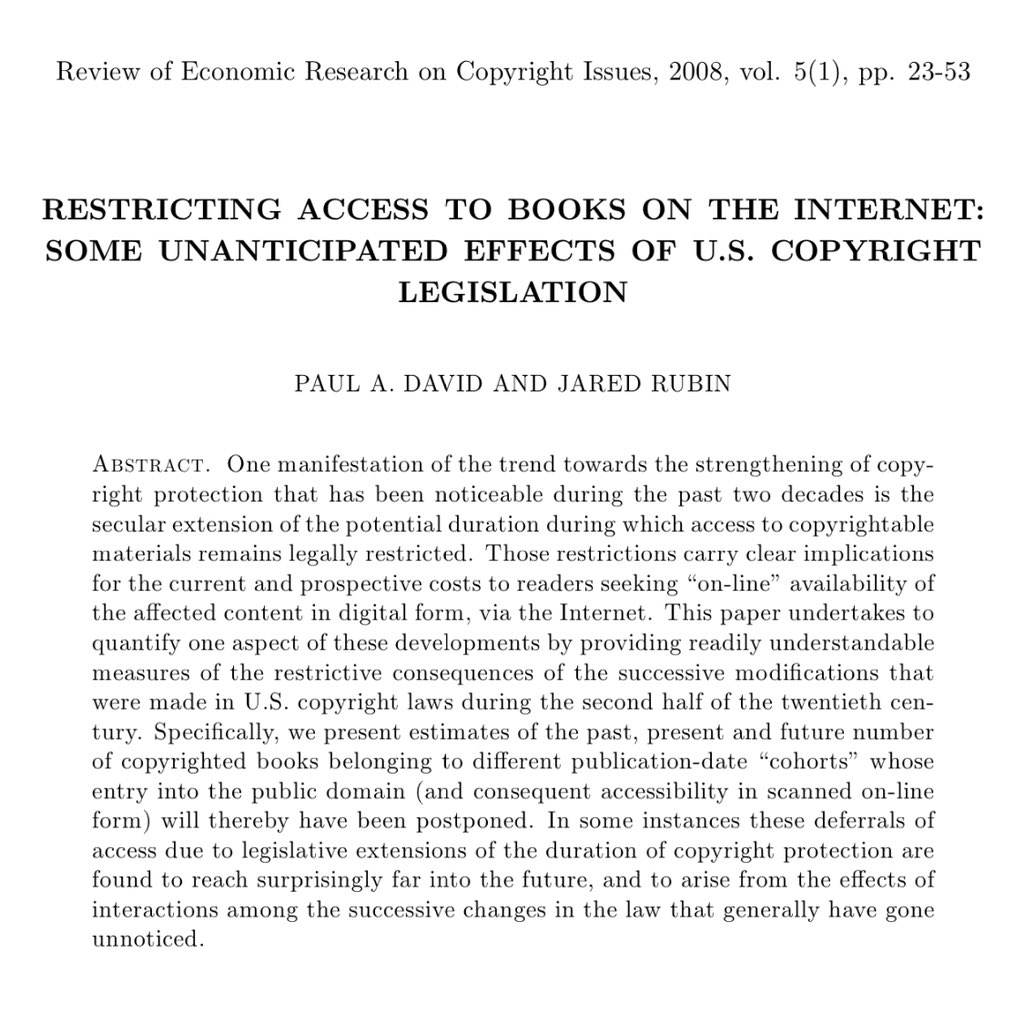
Economics Professor @ChapmanU. President of @ASREC_Religion. Author of Rulers, Religion and Riches and How the World Became Rich https://t.co/1koBQc1JXY
How to get URL link on X (Twitter) App


https://twitter.com/AEAjournals/status/1737503154395140448We take a basic growth framework & show ways the literature argues that religion affects inputs into the macroeconomic production function


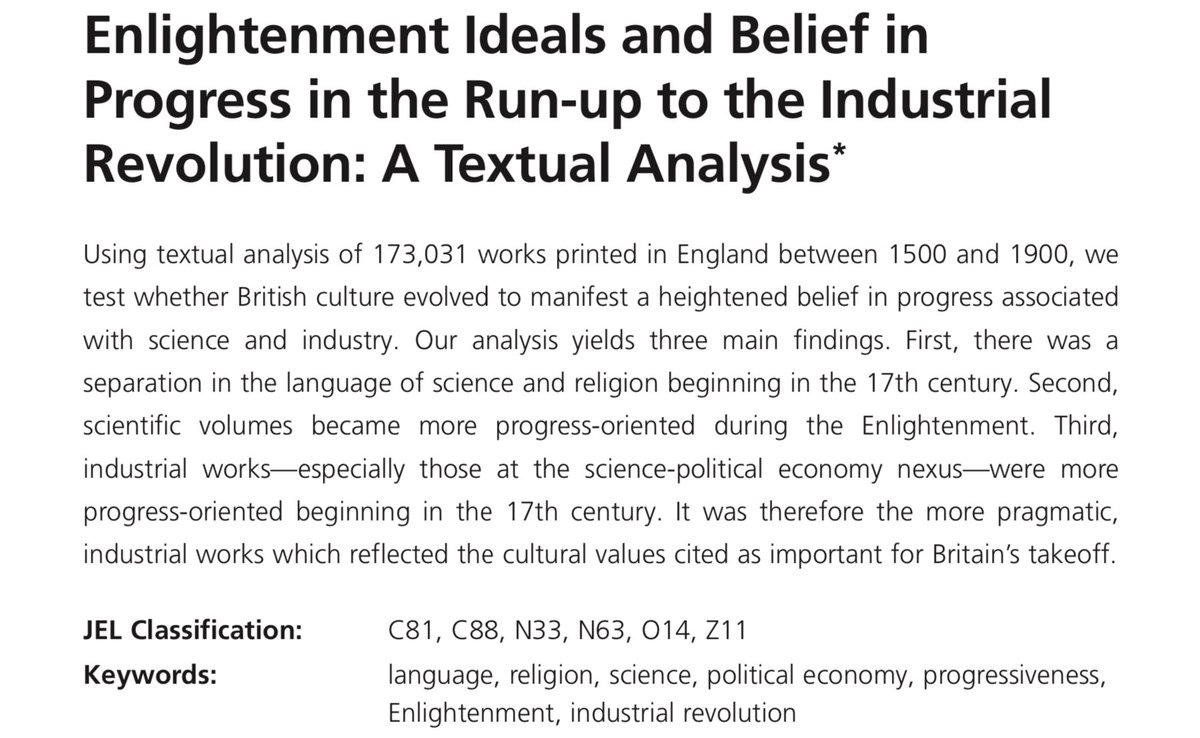

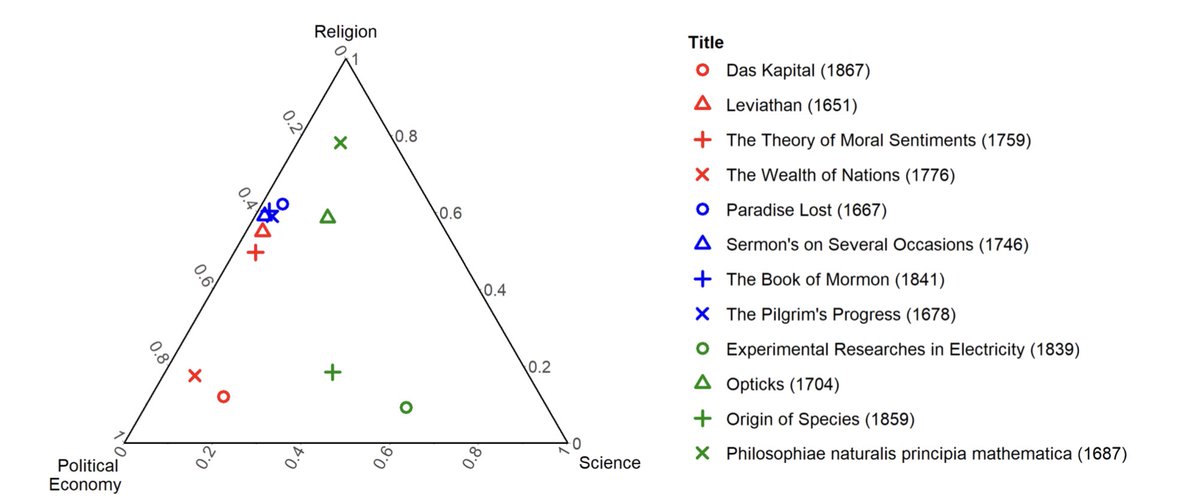
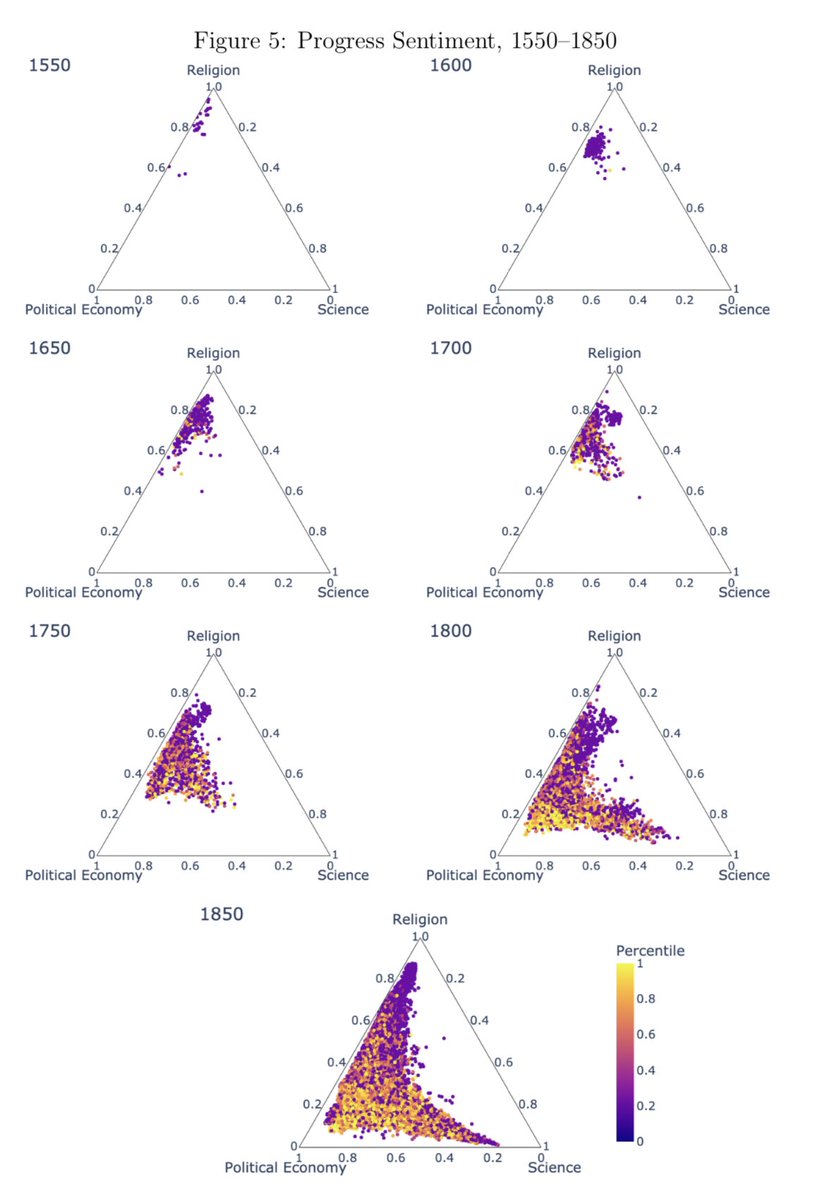
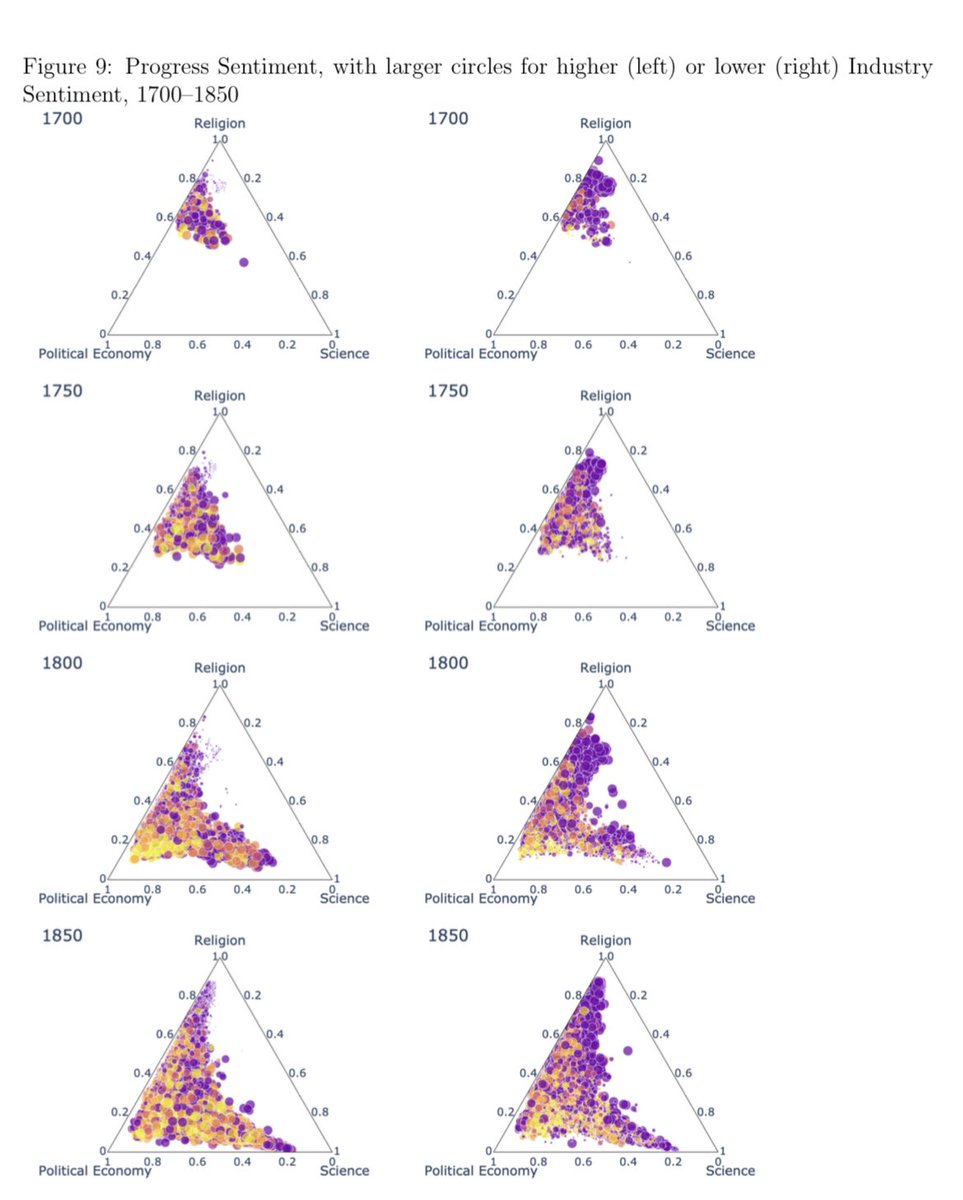 We provide an empirical test of Mokyr’s “Culture of Growth” thesis - which asserts that a *progress-oriented* view of science, promoted by the great Enlightenment thinkers, helped facilitate Britain’s “Industrial Enlightenment” and ultimately its Industrial Revolution
We provide an empirical test of Mokyr’s “Culture of Growth” thesis - which asserts that a *progress-oriented* view of science, promoted by the great Enlightenment thinkers, helped facilitate Britain’s “Industrial Enlightenment” and ultimately its Industrial Revolution 
 We tried to give wide coverage to HPE topics in economics and political science. We organized the volume into five sections:
We tried to give wide coverage to HPE topics in economics and political science. We organized the volume into five sections:




 Much of the political economy literature on this topic tends to focus on vested interests preventing change. This explanation works in many settings
Much of the political economy literature on this topic tends to focus on vested interests preventing change. This explanation works in many settingshttps://twitter.com/cepr_org/status/1361057839582691332One set of theories focus on the legitimating power of Islam (Rubin, @prof_ahmetkuru, Platteau). This gave religious clerics greater power, which pulled political resources away form those encouraging economic development


 Prepared for The Handbook of Historical Economics (elsevier.com/books/the-hand…), edited by @albertobisin & Giovanni Federico
Prepared for The Handbook of Historical Economics (elsevier.com/books/the-hand…), edited by @albertobisin & Giovanni Federico
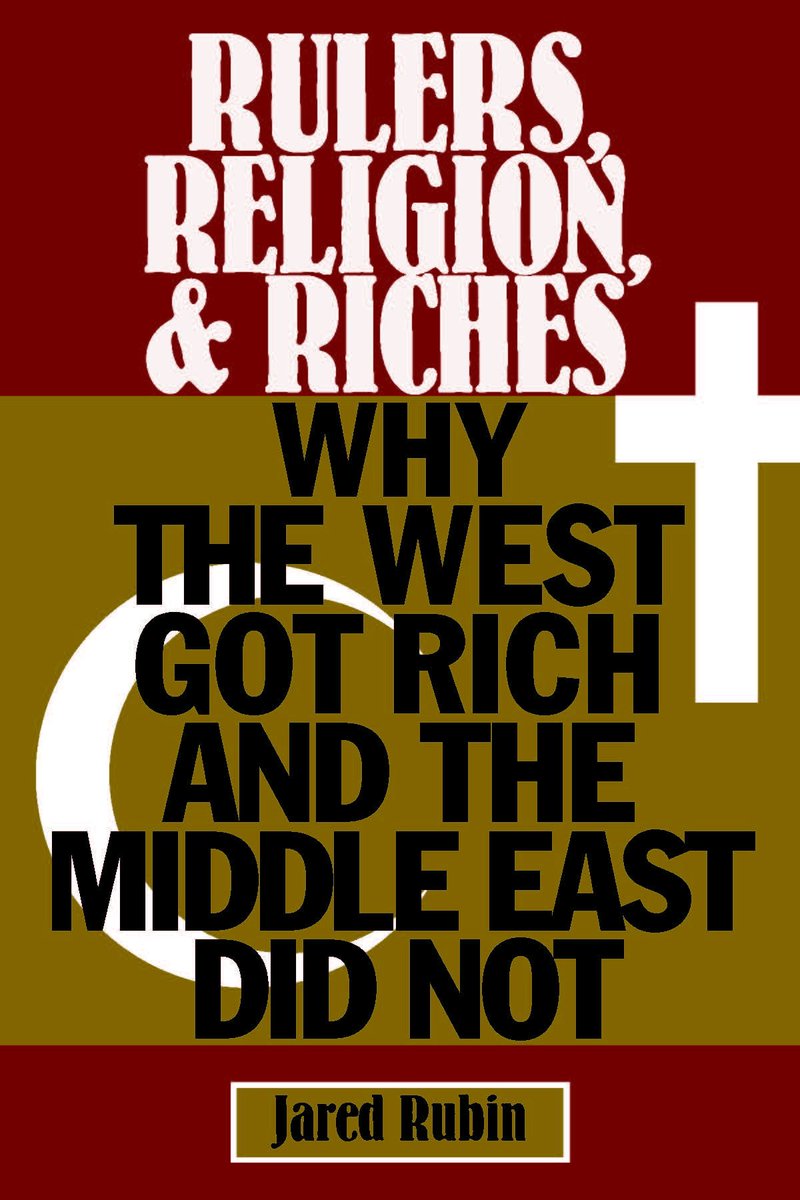
 Table 1.1 is a motivating table, meant to show that the contemporary Middle East is poorer, has worse governance, and is more subject to conflict than the "West".
Table 1.1 is a motivating table, meant to show that the contemporary Middle East is poorer, has worse governance, and is more subject to conflict than the "West".
